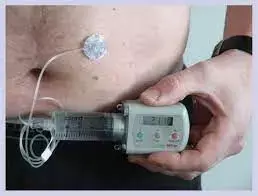- Home
- Medical news & Guidelines
- Anesthesiology
- Cardiology and CTVS
- Critical Care
- Dentistry
- Dermatology
- Diabetes and Endocrinology
- ENT
- Gastroenterology
- Medicine
- Nephrology
- Neurology
- Obstretics-Gynaecology
- Oncology
- Ophthalmology
- Orthopaedics
- Pediatrics-Neonatology
- Psychiatry
- Pulmonology
- Radiology
- Surgery
- Urology
- Laboratory Medicine
- Diet
- Nursing
- Paramedical
- Physiotherapy
- Health news
- Fact Check
- Bone Health Fact Check
- Brain Health Fact Check
- Cancer Related Fact Check
- Child Care Fact Check
- Dental and oral health fact check
- Diabetes and metabolic health fact check
- Diet and Nutrition Fact Check
- Eye and ENT Care Fact Check
- Fitness fact check
- Gut health fact check
- Heart health fact check
- Kidney health fact check
- Medical education fact check
- Men's health fact check
- Respiratory fact check
- Skin and hair care fact check
- Vaccine and Immunization fact check
- Women's health fact check
- AYUSH
- State News
- Andaman and Nicobar Islands
- Andhra Pradesh
- Arunachal Pradesh
- Assam
- Bihar
- Chandigarh
- Chattisgarh
- Dadra and Nagar Haveli
- Daman and Diu
- Delhi
- Goa
- Gujarat
- Haryana
- Himachal Pradesh
- Jammu & Kashmir
- Jharkhand
- Karnataka
- Kerala
- Ladakh
- Lakshadweep
- Madhya Pradesh
- Maharashtra
- Manipur
- Meghalaya
- Mizoram
- Nagaland
- Odisha
- Puducherry
- Punjab
- Rajasthan
- Sikkim
- Tamil Nadu
- Telangana
- Tripura
- Uttar Pradesh
- Uttrakhand
- West Bengal
- Medical Education
- Industry
Continuous Subcutaneous Infusion Delivery of Apomorphine beneficial in treating Parkinson's Disease

Continuous Subcutaneous Infusion Delivery of Apomorphine beneficial in treating Parkinson's Disease suggests a new study published in the Movement Disorders Clinical Practice.
Continuous subcutaneous apomorphine infusion (CSAI) is one of the advanced therapies for Parkinson's disease (PD).
A systematic review of all published articles in English on CSAI for PD till January 30, 2022 was conducted.
Results
A total of 82 articles met the search criteria. Publications included retrospective or prospective open-label observational studies, with a limited number of randomized control trials (RCT). Publications were highly heterogeneous and focused on different aspects of CSAI and included clinical audits, effects on cognition/behavior, axial symptoms, nocturnal issues, adverse events/reasons for discontinuation and comparison with other continuous dopaminergic therapies. CSAI was used in patients who presented severe motor fluctuations not resolved by oral therapy, poor candidates for deep brain stimulation (DBS) due to cognitive/behavioral issues or in those with DBS weaning effect. Recent studies have also shown that CSAI was useful for nocturnal usage in advanced PD, in addition to daytime utilization. Adverse effects were common and include skin lesions, sedation and nausea. Pump management difficulties and patient decisions were common reasons for therapy dropout, predominantly during the initial stages of the CSAI.
There is consistent agreement on the benefits of CSAI in reducing OFF periods and improving ON periods without troublesome dyskinesia and specific motor and non-motor symptoms. Although there is a paucity of RCTs, current data from almost 30 years of use suggests CSAI to be beneficial in advanced cases of PD.
Reference:
Kukkle, P.L., Garg, D. and Merello, M. (2023), Continuous Subcutaneous Infusion Delivery of Apomorphine in Parkinson's Disease: A Systematic Review. Mov Disord Clin Pract. https://doi.org/10.1002/mdc3.13810
Keywords:
Kukkle, P.L., Garg, D. and Merello, M, Movement Disorders Clinical Practice, Continuous Subcutaneous, Infusion, Delivery, Apomorphine, Parkinson's Disease
Dr. Shravani Dali has completed her BDS from Pravara institute of medical sciences, loni. Following which she extensively worked in the healthcare sector for 2+ years. She has been actively involved in writing blogs in field of health and wellness. Currently she is pursuing her Masters of public health-health administration from Tata institute of social sciences. She can be contacted at editorial@medicaldialogues.in.
Dr Kamal Kant Kohli-MBBS, DTCD- a chest specialist with more than 30 years of practice and a flair for writing clinical articles, Dr Kamal Kant Kohli joined Medical Dialogues as a Chief Editor of Medical News. Besides writing articles, as an editor, he proofreads and verifies all the medical content published on Medical Dialogues including those coming from journals, studies,medical conferences,guidelines etc. Email: drkohli@medicaldialogues.in. Contact no. 011-43720751


